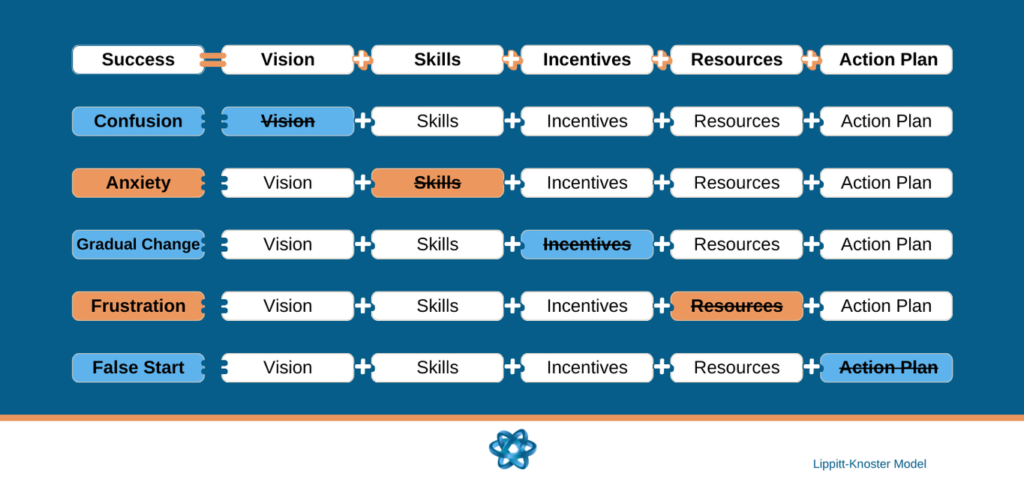
A person will spend 6+ months in the job search
The simple answer is job search is complicated and compounding factors make it grueling.
Let’s take a look at 3 different job changers: Executive, Mid-Career and Early Career.
- Executives have company, team, and time obligations creating a barrier to the job search.
- Mid-career have team, comfort, and strategy barriers of starting the search.
- Early career individuals have knowledge, process, and confidence barriers to the job search.
Furthermore, when there’s a transition from one career stage to another, from executive to c-suite, or mid-career to executive, or early to mid-career, there are additional challenges. The process of entering into a new level comes with imposter syndrome, confidence, knowledge, strategy development, etc. The previous strategies might not work in the new level of job search and you need to adapt your strategy to account for those challenges.
These compound the process and most people have a “false start” to their job search, leading to learning curves, self-sabotage behaviors, anxiety, rejections, self-doubt, confusion, frustration, etc.
Thankfully, there is a framework that can ease the complicated factors.

Lippitt-Knoster Model for Career Change
Lippitt-Knoster Model (adapted for Career Change)
The Lippitt-Knoster Model for Managing Complex Change was developed by Mary Lippitt and Timothy Knoster that outlines factors needed for successful change and guides the process effectively. When all are aligned, we can build our success, but when one is missing, it compounds the factors and creates a complex challenge to addressing the barriers to the job search.
Success = Vision + Skills + Incentives + Resources + Action Plan
Take a moment to think about a time when things went smoothly, what did you do? Did it follow a similar equation like the Lippitt-Knoster Model?
In my work as Organizational development, project management, personnel management, and DEIA initiatives, I’ve used this process to make over-archinging changes that were effective and efficient.
Confusion in the Job Search
Confusion = Vision + Skills + Incentives + Resources + Action Plan
When we don’t have a vision for our future, the job, or our intended target we start experiencing confusion. We sway back and forth and leave ourselves too vulnerable to taking advice from everyone and all outlets, leading to analysis paralysis and mental fog. We lose our conviction in our vision and lose our focus on what matters most.
Often, when I have a client that is swaying with countless possibilities, and everything new that comes to their knowledge becomes “that’s something I can do”, and it continues to change regularly, it creates delays in the job search and securing a role. We work through the confusion and start creating a vision with the client that aligns with their priorities and the market needs. Alleviating confusion and leading to success.
Anxiety in the Job Search
Anxiety = Vision + Skills + Incentives + Resources + Action Plan
When we have a strong vision but feel like we’re missing the skills, we start feeling anxious and our imposter syndrome grows uncontrollably. Leading to questioning every process and questioning all the other aspects that lead us to success. When we doubt our skills, it’s seen in the interview, resume, networking, and the job search. The emotional battle further contributes to the delay of the job search and many fall into the skill acquiring trap.
When I have a client feeling anxious about the change, we have to address the anxiety and ensure they return to feeling more confident about their success. The coaching session can take many forms depending on the level of anxiety and the best way the client manages their anxiety. High anxiety can disrupt nearly all the other factors that empower us to succeed.
Gradual Change in the Career Search
Gradual Change = Vision + Skills + Incentives + Resources + Action Plan
This is what makes it difficult for people to get unstuck, because they have gradually become accustomed to their current role, job, career, company, and the incentive to keep changing or switching jobs isn’t a strong motivator. This can change when the organization shakes things up, starts a round of lay offs, creates toxic environments, etc.
When clients feel stuck in their career, we investigate the incentives that’s valuable for the client and want them to keep their comfort. This is a nice barrier to have, but once we become complacent or worse we’ve tried leaving a toxic space without success, we can feel helpless and dread trying because we might “fail” again. Thus, perpetuating the “we’re stuck” mentality.
Frustration in the Career Search
Frustration = Vision + Skills + Incentives + Resources + Action Plan
When we don’t have the proper resources, we can keep trying but it feels like hitting a wall. Nothing gets passed the wall and the barrier continues, we continue feeling stuck, we become more anxious and lastly, we try modifying our vision and stay open to everything. Again, adds fuel to the change process and job search timeline. This is when people think about working with a career coach.
“I keep applying and nothing happens!! Can you update my resume and linkedin?” Yes, I can help modify the resume and linkedin, but that’s not the only resource that needs addressing, those collaterals makes us think that’s how job search is conducted, but it’s not the most successful method.
False Start in the Job Search
False Start = Vision + Skills + Incentives + Resources + Action Plan
Not having an action plan or strategy creates more false starts, delaying the job change process, and shifting everything in the successful change framework. More often, I hear I’m looking for a job and that means start applying and hope for the best, and keep applying to 70+ jobs before we start getting our resumes past the ATS and start interviewing.
When I see clients, most don’t have an action plan, but they are frustrated, anxious, lost motivation, and feel confused on how to actually change their circumstances. Creating an action plan is easy when we have the framework, and working through the action plan and trusting the action plan is difficult because we often want solutions immediately.
Overcoming the Job Search Delays
Sadly, job search is a discovery and adaptation process, which takes time when going through it alone, and it will take time. By following this framework, you can be more intentional about the stages you are currently navigating and act strategically to reduce your time to job search success.
When working with our clients, most see a job search timeline reduction by nearly 50%, mostly because we’ve helped thousands of individuals navigate their career search and know how to leverage your strengths to align their vision, skills, incentives, resources, and develop a robust action plan.

